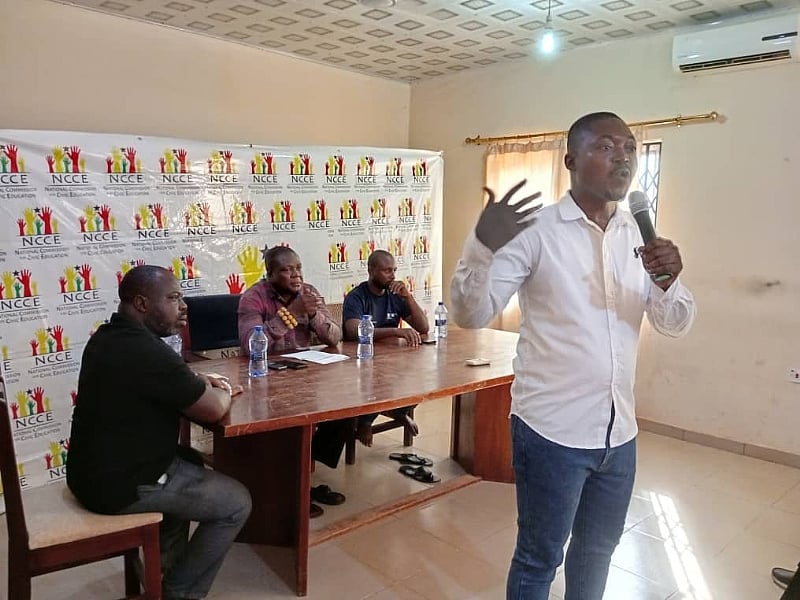In the lead-up to the Keta constituency parliamentary elections in Ghana’s Volta Region, candidates from the two dominant political parties—New Patriotic Party (NPP) and National Democratic Congress (NDC)—chose to absent themselves from an inter-party dialogue and debate organized by the National Commission for Civic Education (NCCE). The debate, a platform intended for candidates to discuss their manifestos and engage with constituents regarding key local issues, saw participation from other candidates, but neither Mr. Kwame Dzudzorli Gakpey of the NDC nor Mr. Courage Hope Goldberg-Grimm Lekettey of the NPP were present. Togbi Hatsu III, the NCCE director in Anloga, noted that both candidates failed to inform the organizers about their absence, expressing disappointment that such an important civic engagement was disregarded.
The debate in question was designed to facilitate direct interaction between candidates and the electorate, focusing on pressing issues like agriculture, education, economic advancements, infrastructure development, health, and employment opportunities. Such engagements are crucial in fostering democratic practices and ensuring candidates are held accountable for their commitments to the constituents. Despite being notified about the proceedings, the absence of the two major party representatives raised concerns among the organizers and voters alike, who viewed participation as vital to the electoral process.
In contrast to the absent NPP and NDC candidates, Mr. Stanley Courage Dugah, an independent candidate, took the opportunity to showcase his priorities for the constituency. He emphasized his dedication to improving critical areas such as education, health, and agriculture, positioning himself as a viable alternative to the long-established parties. Dugah criticized the two parties for neglecting the needs of the constituents, expressing a desire to bring about positive change through effective lobbying rather than mere political promises. His message resonated with voters who felt disenfranchised by the mainstream parties and their failure to address local concerns.
Mr. Israel Goka, representing Mr. Yayra Kwaku Kwashie from the Liberal Party of Ghana (LPG), also voiced frustration regarding the perceived neglect of Keta by the NPP and NDC, underscoring the need for new leadership committed to genuine progress. He advocated for a comprehensive approach to governance that would address not only education and infrastructure but also sports and community development. Goka’s call for voting for competent leaders over “unreliable politicians” was a direct critique of the status quo and aimed at mobilizing support for alternative parties that promise more accountable governance.
Feedback from constituents who attended the dialogue and debate varied widely. Many expressed appreciation for the opportunity to engage with candidates and pose questions about their visions for the constituency. However, the absence of the NPP and NDC candidates sparked disappointment among voters who had anticipated a more robust discussion of the issues integral to their community’s future. This varied response highlighted the importance of candidates’ presence in public forums and the expectations that voters have for their representatives.
As the 2024 elections approach, many constituents remain hopeful that their respective candidates will win the parliamentary seat and bring substantial change to the fortunes of residents in Keta. The absence of the NPP and NDC candidates during this pivotal civic engagement has created an opening for independent and smaller party candidates to capitalize on voter dissatisfaction with traditional political options. As awareness grows about the importance of political participation and engagement in the democratic process, it becomes clear that the candidates’ willingness to engage with the electorate will be a crucial factor in determining their success on election day.


